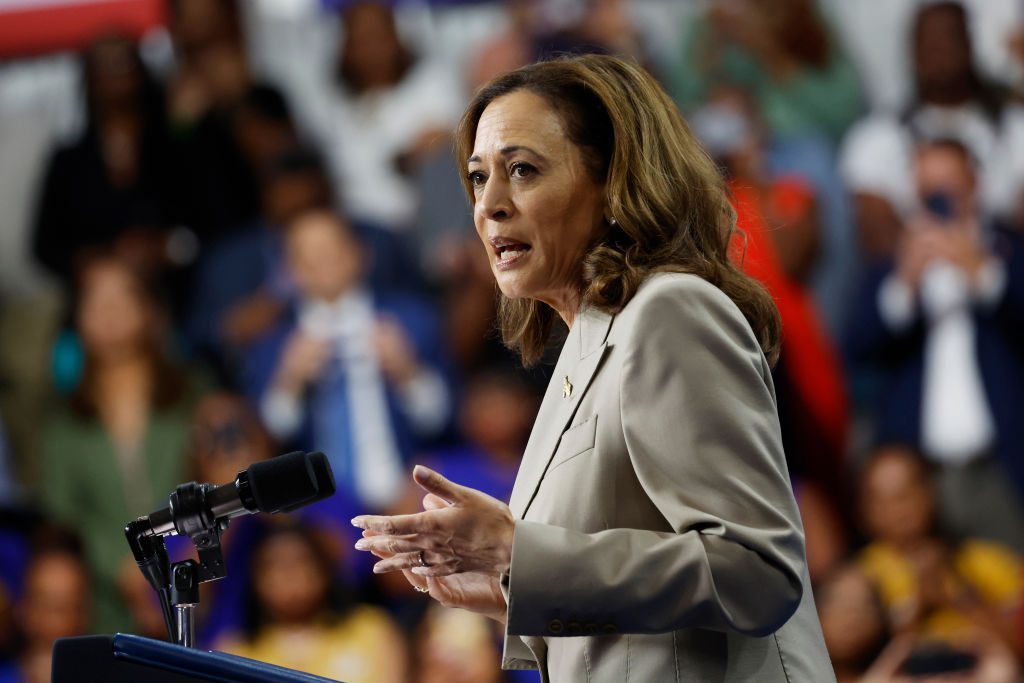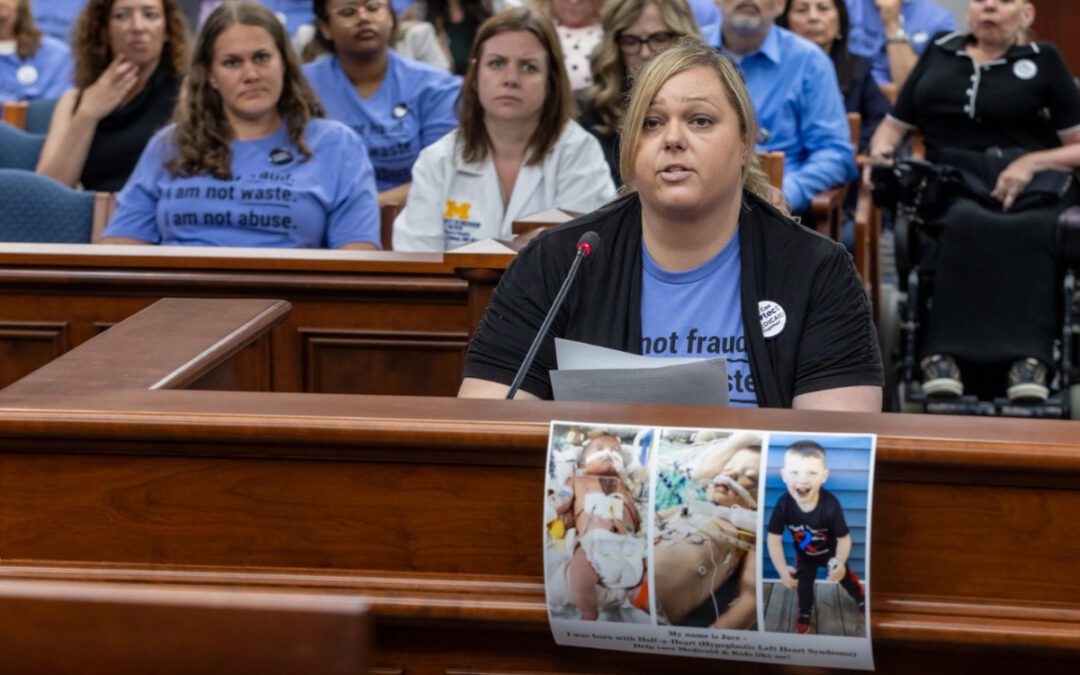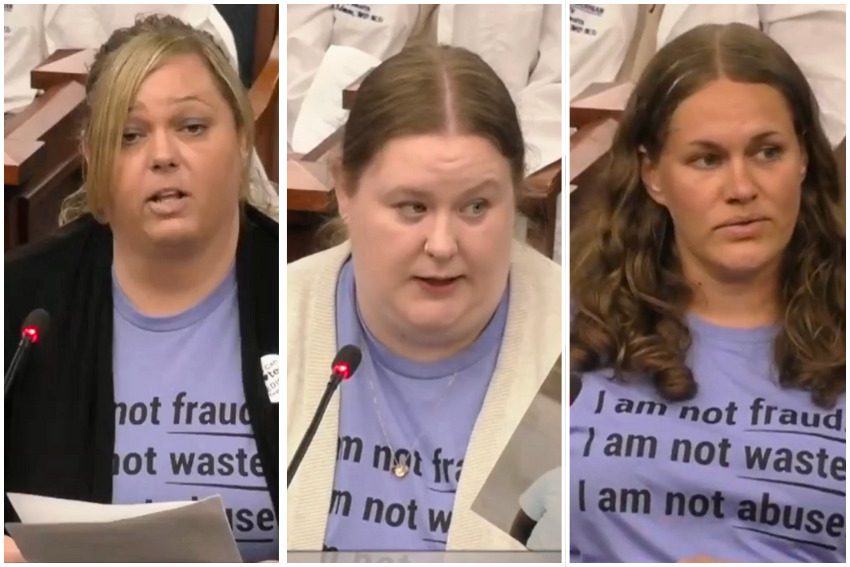
Vice President Kamala Harris gives remarks alongside U.S. President Joe Biden at Prince George’s Community College on August 15, 2024 in Largo, Maryland. Biden and Harris held the event to talk about their administration's efforts to lower drug costs. This event is the first time President Biden and Vice President Harris have appeared in public together since Biden announced he would be stepping down from running for re-election. (Photo by Anna Moneymaker/Getty Images)
Harris wants to expand the $35 monthly cap on insulin costs and a $2,000 annual cap on out-of-pocket drug costs so that they apply to all Americans, not just seniors on Medicare.
Vice President Kamala Harris plans to build on the work she and President Biden have done to lower prescription drug costs, should she be elected president in November.
Two of her proposals would specifically expand on policies passed by the administration in the Inflation Reduction Act (IRA).
The law implemented a $35 monthly cap on insulin for Medicare recipients, and beginning in 2025, is set to limit Medicare recipients’ out-of-pocket prescription drug costs to $2,000 per year.
As a result of that $35 monthly cap, nearly 67,000 Michigan seniors on Medicare who use insulin are now charged no more than $35 per month for an insulin prescription. An estimated 672,860 seniors in the state are also expected to save $356 a year each due to the $2,000 cap on out-of-pocket drug costs, according to an analysis by the US Department of Health and Human Services.
Harris wants to expand the $35 monthly insulin cap and the $2,000 annual cap on out-of-pocket drug costs so that it applies to all Americans–not just seniors on Medicare.
The Inflation Reduction Act also authorized Medicare to negotiate prices for expensive drugs with pharmaceutical companies for the first time. The negotiations — which used the power of Medicare to lower drug costs for seniors — are expected to save taxpayers about $6 billion when they go into effect in 2026. The new prices for the first 10 selected drugs will be anywhere from 38% to 79% lower than the drugs’ list prices last year, saving seniors on Medicare an estimated $1.5 billion in out-of-pocket costs in 2026 alone.
Another 15 drugs are set to be selected for negotiation and see their prices decrease in 2027, with 15 more following in 2028, and 20 more in 2029 and each year afterwards.
Harris has proposed both accelerating these negotiations and broadening the number of drugs eligible to be negotiated in the first place.
“We have capped the cost of insulin at $35 a month for seniors, capped prescription costs for seniors at $2,000 a year, and allowed Medicare to negotiate drug prices,” Harris wrote earlier this month on Facebook. “As president, I will continue to make health care more affordable for working Americans.”
All of Harris’ plans would require congressional approval, which would only be likely if Democrats win control of the House and Senate in November.
Harris also wants to expand on the federal government’s role in canceling medical debt.
The Biden-Harris administration announced last year that it would develop federal rules that would bar unpaid medical bills from affecting patients’ credit scores.
Barring medical bills from appearing on credit reports would help tens of millions of Americans who have medical debt by eliminating information that can depress their scores, and therefore make it more difficult for them to get a job, rent an apartment, or secure a car loan, for example.
“We believe in a future where the economy works for working people,” Harris said earlier this year. “We are finally making it so that medical debt can no longer be used against your credit score.”
Harris has said she plans to work with states to cancel medical debt for millions of Americans if elected.
Finally, Harris has vowed to increase competition in the pharmaceutical industry, and she wants to start by “cracking down on pharmaceutical companies who block competition and abusive practices by pharmaceutical middlemen who squeeze small pharmacies’ profits and raise costs for consumers.”

States can cut off Medicaid funding to Planned Parenthood, the Supreme Court rules
The ruling authored by Justice Neil Gorsuch and joined by the rest of the court's conservatives could have broader implications for Medicaid...

Report: Trump-backed Medicaid cuts to strip health care from 500,000 Michiganders
A Michigan Senate committee released the findings this week—just as the US Senate eyes legislation that would slash hundreds of billions of dollars...

Opinion: How Trump’s medical debt policy hurts people like me
With a rule to remove medical debt from credit reports on hold, this Michigan veteran is calling on Trump to act. I’m an Army veteran who willingly...

Slotkin blasts Trump’s plan to strip Americans of their healthcare at packed town hall in Lansing
US Sen. Elissa Slotkin and Congresswoman Kristen McDonald Rivet are warning about a Republican-backed budget that would gut Medicaid, raise health...

‘A catastrophe for my family’: Michigan moms, doctors beg Republicans not to gut Medicaid
Parents, doctors, and health officials are warning that proposed federal Medicaid cuts would threaten children’s lives and dismantle essential...







